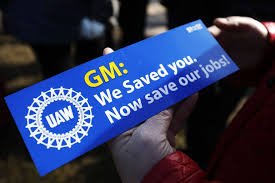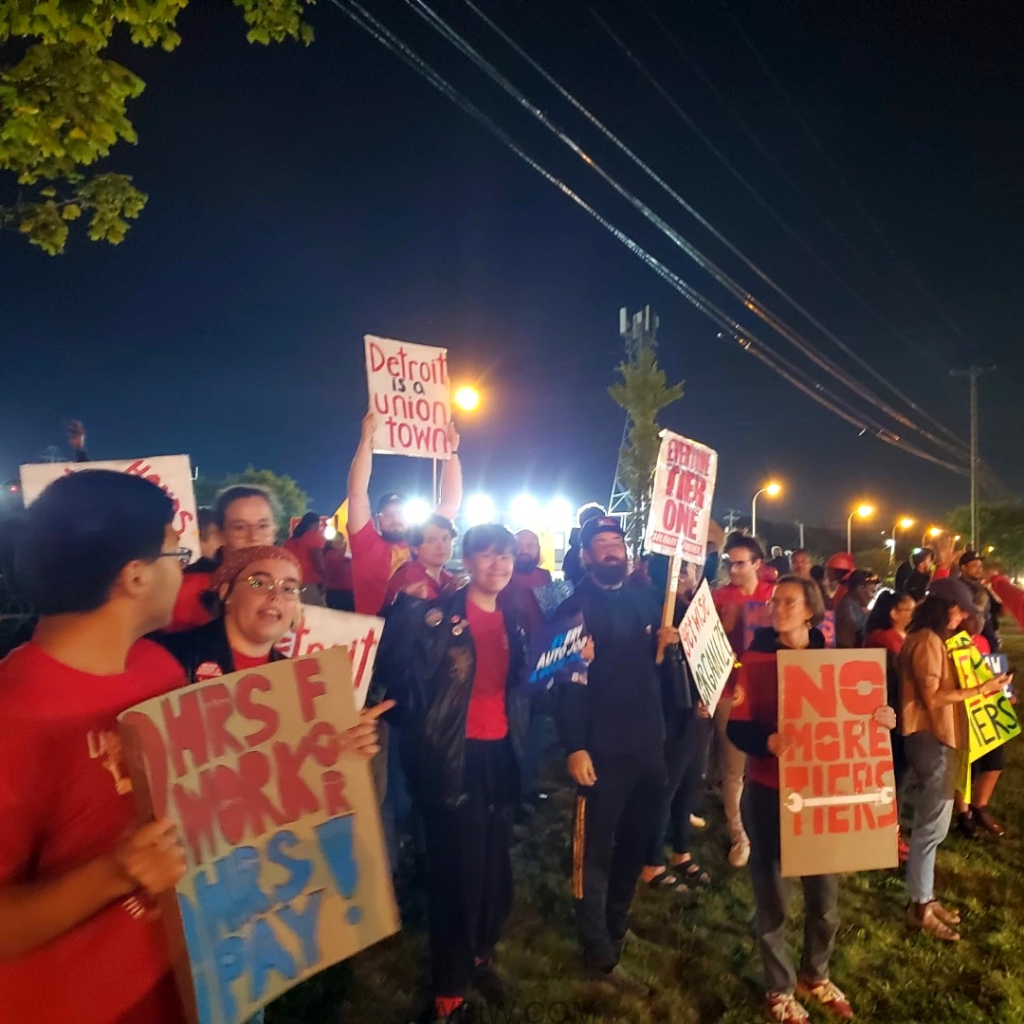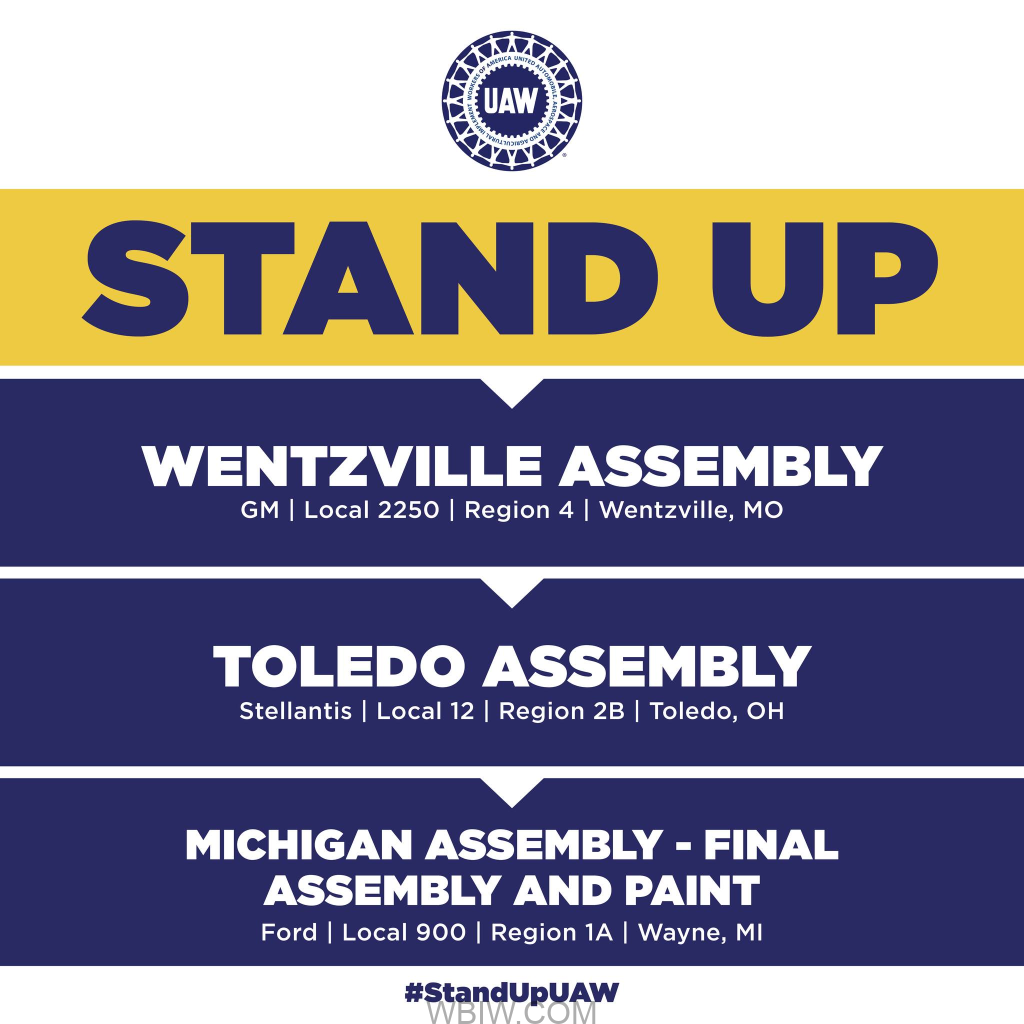
INDIANA – At midnight, thousands of UAW workers lead the first of a series of targeted strikes aimed at the Big Three automakers: GM, Ford, and Stellantis for the first time in history.

These three assembly plants went on strike at midnight:

During a Facebook Live event, UAW President Shawn Fain said members would use a “stand up” strike strategy in which employees “at a limited number of targeted locations”.

The nearly 150,000 autoworkers who are active UAW members will not strike all at once.
The strategy, including ramping up strikes as negotiating continues, would give the UAW more leverage. “We have the power to keep escalating and keep taking plants out,” Fain added.
Non-striking locals will be ready to walk out at a moment’s notice, pending direction from national leadership.
UAW Local 440 members at GM Bedford Casting Operations are still working but without a contract.
United Auto Workers President Shawn Fain criticized the Big Three car manufacturers’ latest contract offers as “woefully inadequate”. All locals will continue organizing rallies, protests, and community events while supporting those members who are on strike.
Even with only three local unions on strike, production could still grind to a halt at General Motors, Ford, and Stellantis.
One advantage for the union with a stand-up strike is the potential to save resources and extend the possible walkout. Striking union members are eligible for $500 a week from the union’s strike fund.
If all 145,000 UAW members among the three automakers were to strike at the same time, it could cost the fund more than $70 million a week, draining the $825 million fund.
If the companies shut down operations and lay off members who are not technically on strike, those workers could be eligible to receive state unemployment benefits rather than strike benefits, which could preserve the union’s resources.
Non-striking UAW members will be working under an expired agreement, not a contract extension.
Union representatives are asking the three Detroit-based companies for a 46% wage increase, cost of living raises, a 32-hour workweek for 40 hours of pay, the end of “tiered wages,” or a system where some workers receive automatically lower pay if they start after a certain date, and a return to pensions. Stellantis, Ford, and made a combined $20 billion in profits and UAW members argue that “record profits should mean record wages.”
UAW President Shawn Fain said in a Facebook Live address, “Our goal is to reach a fair agreement. But if the companies continue to bargain in bad faith or continue to stall or continue to give us insulting offers, then our strike will grow. At the beginning, only a select few will strike. Then, as needed, more will join. We will hit where we need to hit when we need to hit, to move mountains.”
Here is GM’s response in a video on negotiations.
GM CEO Mary Barra sent a letter to employees Thursday saying the company’s latest offer now includes a 20% raise, with an immediate 10% pay hike. The lower-paid temporary employees would get $20 an hour, which represents a 20% raise from the current $16.67 an hour they receive. She called the offer “historic.”
“We are working with urgency and have proposed yet another increasingly strong offer with the goal of reaching an agreement tonight. Remember: we had a strike in 2019 and nobody won,” she said in the letter.



